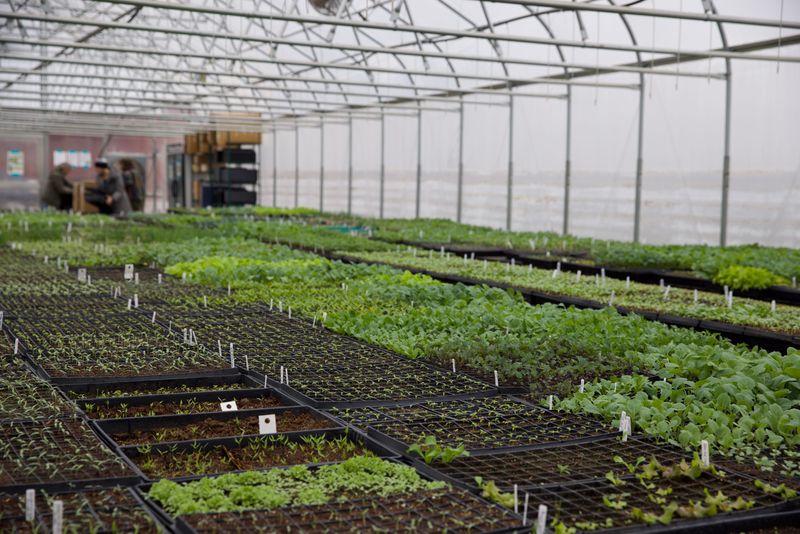Weak enforcement leads to dirty water
According to a recent news story, the U.S. Environmental Protection Agency just gave a slap-on-the-wrist fine to a big cattle feedlot in northwest Iowa for “unauthorized wastewater discharges” that occurred over three consecutive days in March 2021. That seems like the wrong thing to do.

The fine could’ve been $205,335 — up to $68,445 a day for three straight days of manure discharges. But instead, EPA went with a $20,000 fine because the feedlot has a “limited ability to pay a civil penalty.” My question is: if it’s short on cash to pay for its environmental violations, why are we allowing the feedlot to operate? And on top of that, reducing the fine by 90% sends a “it’s OK to pollute” message to other factory farms across the state. We shouldn’t be doing that.
Is it any wonder Iowa has over 700 impaired and threatened waterways? Weak enforcement leads to dirty water. If we’re serious about cleaning up our water, we need to crack down on polluters with much tougher fines and penalties.
Hugh Espey, Des Moines
Commitment to fresh food is inspiring
Thank you to the Register and reporter F. Amanda Tugade for covering the story about LSI purchasing Dogpatch Urban Gardens. At a time when politics feels like a giant dumpster fire, the story exhibits the good things that can and do happen in our community. Small businesspeople Jenny and Eric Quiner are dedicated to producing locally grown foods for sale, not just profit for profit’s sake. They demonstrated this with their sale of their gardens and donation of additional garden equity to Lutheran Social Services (LSI). LSI in turn continues their legacy of producing healthy fresh local foods while lifting community members who want to become entrepreneurs through farming.
Fresh food locally grown is not only good for health but eliminates shipping foods in season from states or countries far away saving a bit of cost to our environment. Can it cost a bit more than supermarket chains who deal in mass quantities? Yes, sometimes, but the cost is worth the benefit. Invest in our community, buy fresh, by local when you can.
Doreen Chamberlin, Windsor Heights
Des Moines’ moment to lead
Des Moines stands at a crossroads. With its enviable combination of affordable living, strategic location, and a tax base that welcomes industry, the city has the raw ingredients to become a model for Midwestern prosperity. The question is whether we will seize the opportunity.
For decades, Des Moines has been known as an insurance capital. That legacy is valuable, but the future demands diversification. By investing in technology, advanced manufacturing, and agricultural innovation, the city can build resilience against economic shocks while attracting new talent. A favorable tax environment is only part of the equation; people want to live where opportunity meets quality of life.
That means doubling down on livability. A vibrant downtown, walkable neighborhoods, and cultural amenities are not luxuries — they are magnets for the workforce of tomorrow. Affordable housing must remain a cornerstone, but it should be paired with sustainability: green infrastructure, renewable energy, and conservation initiatives that make Des Moines not just affordable, but future-proof.
Public-private partnerships, already a strength here, can accelerate this transformation. Collaboration between government, business, and nonprofits will ensure that growth is inclusive, benefiting both new arrivals and long-time residents. And with its central location, Des Moines is poised to be a logistics and connectivity hub, provided we invest in transit and digital infrastructure.
The path forward is clear. Des Moines can choose to be merely affordable — or it can choose to be attractive, profitable, and fulfilling. The city’s moment is now. Let’s not waste it.
Wayne Hoffman, Urbandale
A fitting way to commemorate longevity
I would like to suggest naming the Mile Long Bridge to honor the nation’s longest-serving governor. The Terry Branstad Bridge.
He has truly earned this, and the people of Iowa would be honored by this fitting honor.
Dan Roepke, Ames
The United States owes the world for its profligate emissions
The United Nations’ climate change conference COP30 ended in Brazil on Nov. 21. This was the most important conference on Earth where leaders gather to identify, address and evaluate our collective progress toward maintaining a climate habitable for human life to continue.
The United States did not show up. And an online search for COP30 conference coverage in the Des Moines Register resulted in just a handful of mentions. How can that be? Alternatively, when you search “tariffs”— a Republican preoccupation of making sure other countries “pay their fair share” and then “how to compensate farmers from Trumps tariffs” — you will have lots to read.
One premise behind the GOP’s and President Donald Trump’s tariff obsession is that the United States is a victim because countries are not paying their fair share to access our market. Fair share? The U.S. is the biggest perpetrator of excess fossil fuel emissions, accounting for 40% of the historical cumulative excess. Fairness would be the U.S. compensating other countries for our share of fossil fuel emissions that decrease our planet’s habitability.
The U.S. has the highest “climate debt” while half of the world’s countries are in climate credit. Climate credit countries remain under their fair share of emissions and are not responsible for the climate crisis. Climate change will continue to wreak havoc until the United States acknowledges this country’s role and enacts meaningful fossil fuel emission reduction.
Trump’s Environmental Protection Agency is doing the opposite. Trump, with the support of Republicans, claims that the cost of addressing climate change outweighs the benefits. How grossly shortsighted. How self-centered and self-defeating. How terrible for the next generations especially. Trump’s tariff tiffs are akin to fighting for priority seating on the Titanic. If we don’t address climate change — and quickly — we are all going down.
Mercedes Bern-Klug, Iowa City, and Cora Bern-Klug, Seattle
Devaluing nurses is ill-considered. Remember COVID?
The Department of Education has moved forward to reclassify nursing as a non-professional degree program. This will have impacts on the ability of our future nurses to obtain funding for their training.
I submit my opinion not from a political perspective but a practical one. With COVID not far in the past, hospitals and clinics still struggle with staffing for all types of health care providers. If there was any lesson to learn from COVID, it is that nurses are the fundamental building block from which all good health care comes.
It does not matter if it is an EMS call, the emergency room, the operating room, the hospital floor or a health care clinic; ultimately, the success of that patient’s health care is placed in the hands of a nurse. From a business perspective, hospitals have gone into significant debt because COVID affected staffing and retention such that outside nurses needed to be brought in and paid at a premium to maintain quality care in our hospitals.
What should then be the message to leadership at the national and local hospital levels? It is that hospitals and clinics need to be well staffed with well-trained nurses. We have an opportunity to see the challenges COVID presented and think about how we respond to those challenges. We can learn, adapt and evolve in our thinking to make sure our current and future nurses have the support, resources and compensation that allow them to continue providing excellence in health care.
Alternatively, we can fail to “see the forest through the trees” and make choices like removing a professional designation that will affect the most important professional title we have in health care, “R.N.”
Dr. Thomas L. Martin, Waukee
Trump is responsible for children starving in Africa
I graduated from seminary in 1994. I was fortunate to take a trip to Nairobi, Kenya during my three years of study. One of my visits included a large refugee camp outside of Nairobi where I witnessed children receiving food for breakfast from charitable organizations as well as programs supported by the United States. The kids looked healthy as they ate their fill and scrambled to play soccer. I felt good knowing the children were being fed in spite of the trauma surrounding their lives in the refugee camp.
Thirty years later the children are no longer well fed. A documentary published by the New Yorker magazine written by Atul Gawande revealed there is chronic malnutrition in Kenyan villages because President Donald Trump shut down United States Agency for International Development programs. The children in the village were thriving prior to Trump taking office, but that has reversed since the aid was removed. The documentary focuses on a mother, Ravina Naboi, trying to keep her starving child alive. In an effort to do all she can, she walked six miles with the child to a hospital seeking help. The child died while at the hospital.
How is it in our nation that one man, the president, can make a decision to withdraw aid that results in “hundreds of thousands” of deaths due to malnutrition? I think it is safe to say that most U.S. citizens would like to see children thrive whether at home or abroad. To politicize this issue and keep the food away is evil. The aid needs to return! If we have the funds to refurbish the White House with gold trimmings, then we can surely find money to keep kids alive.
The Rev. Denny Coon, Ankeny
Kim Reynolds and Iowa seem to value regulation in some areas
I find it rich that Gov. Kim Reynolds says “regulation is hardly ever the answer” about farming practices related to polluting waters while schools and universities are being regulated to death when it comes to telling true American and Iowa.
Sheena Thomas, Des Moines
Let’s assist people in need in Ankeny
I have been noticing empty “Helping Hand” boxes around Ankeny. With the boxes empty, people in need cannot get the food that they need. Anyone can fill them up by buying non-perishable food in them. Churches and other groups can set up programs to help with this, too. I would be overjoyed to see people helping those in need.
Kaleb Schall, Ankeny
This article originally appeared on Des Moines Register: Commitment to fresh food in central Iowa is inspiring | Opinion
Reporting by The Register’s readers, Des Moines Register / Des Moines Register
USA TODAY Network via Reuters Connect


